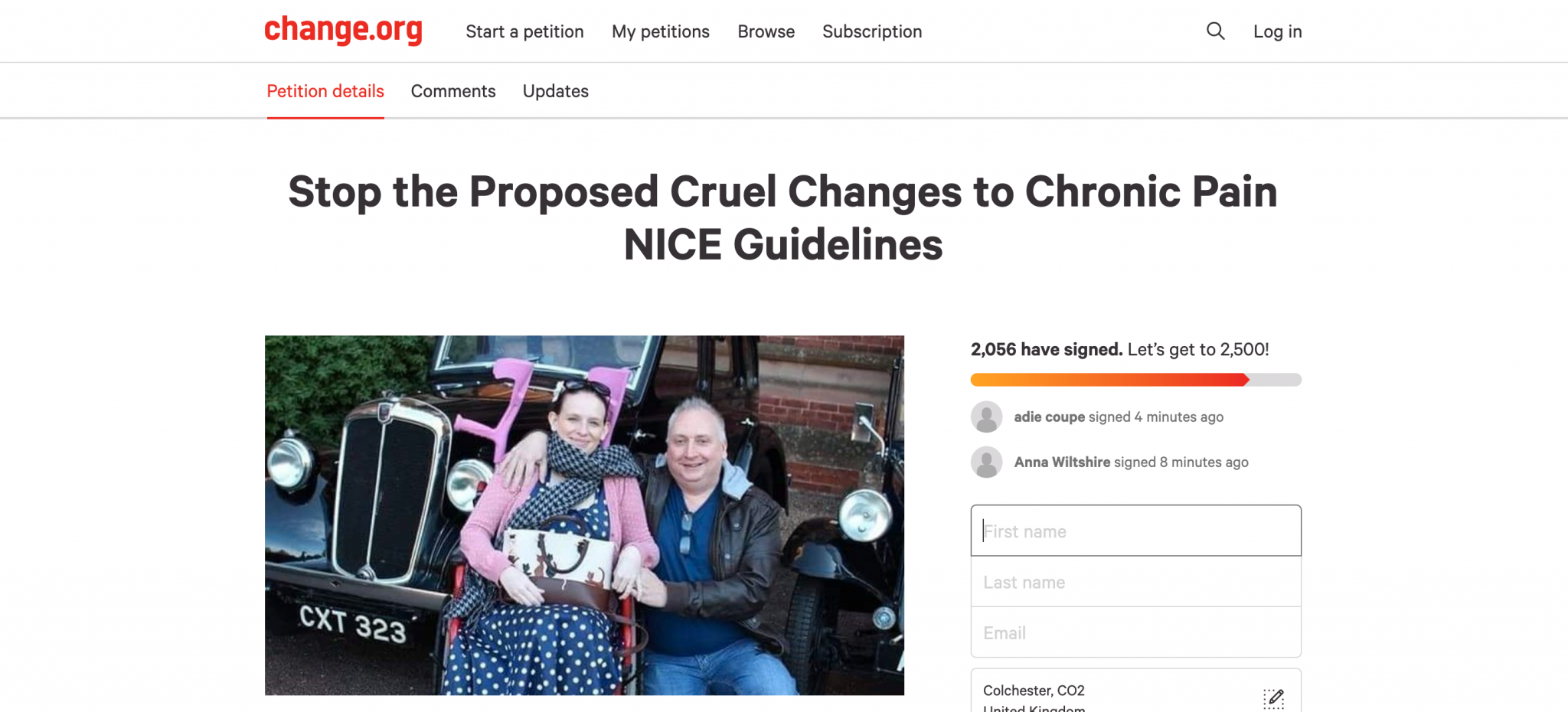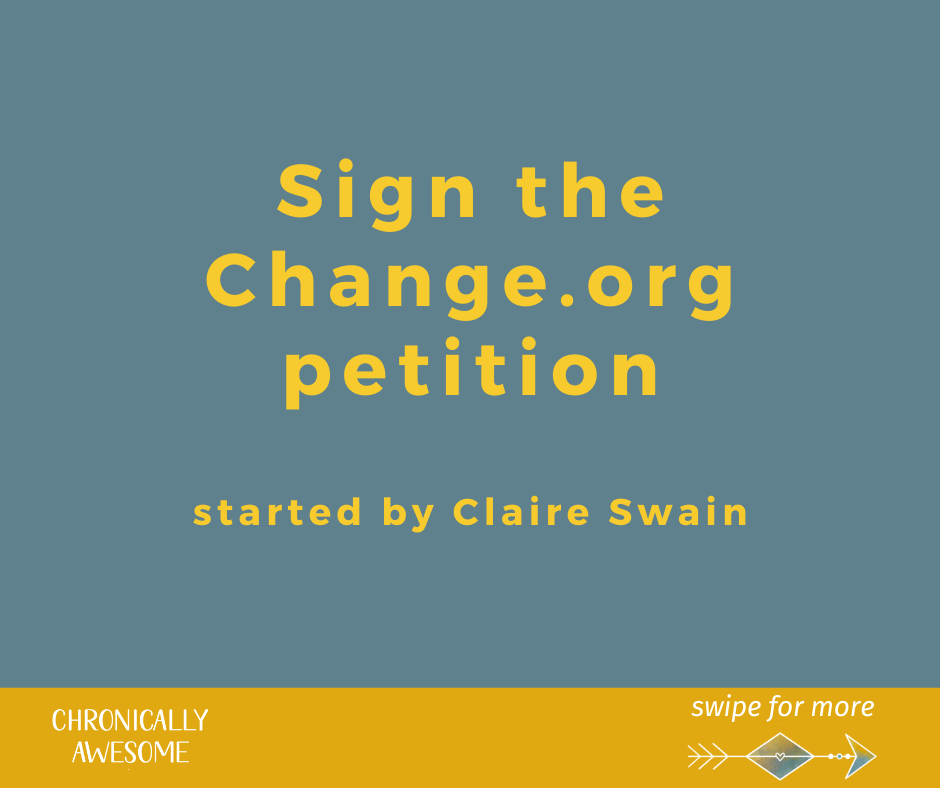
First off, if you haven’t read our first post about the proposed NICE guidelines for the treatment of chronic primary pain, please read that before this post. You can read that post here.
There are a variety of ways that you can have your say when it comes to these proposed guidelines. First and foremost is feeding back to NICE, which is best done via one of their registered stakeholders, of which we are one. Alongside that, there is a Change.org petition that you could sign, you could write to your MP and heads of your local NHS Trust and CCG, as well as to relevant APPGs (don’t worry, there are template letters and info. below), you could write to the media (again, we have resources below), and you can spread the word!
Click on one of the tabs below to find out more about how you can have your say in different ways. If you run into trouble, just email ellie@chronicallyawesome.org.uk
Write to your MP, your CCG and your NHS Trust
Raising our concerns with those in power is vital if we are to stop these proposals coming into effect. You can do this by writing to your MP, and the heads of your local NHS Trust and Clinical Commissioning Group (CCG). You may also wish to write to one or more of the chairs of relevant All Party Parliamentary Groups (APPGs), details of which can be found below.
To assist you in writing to MPs, Trusts and CCGs, we’ve created a series of templates that you can use as they are or edit as you see fit before sending.
You can find your local CCG here.
There is a list of NHS Trusts here.
APPG on Endometriosis: Sir David Amess MP, House of Commons, London, SW1A 0AA. Tel: 020 7219 3452. Email: amessd@parliament.uk.
APPG on Health: Dr Lisa Cameron MP, House of Commons, London, SW1A 0AA. Tel: 020 7219 6855. Email: lisa.cameron.mp@parliament.uk.
APPG on Medicines and Medical Devices: Chris Green MP, House of Commons, London, SW1A 0AA. Tel: 020 7219 8685. Email: chris.green.mp@parliament.uk.
APPG on Mental Health: Jeff Smith MP, House of Commons, London, SW1A 0AA. Tel: 020 7219 5878. Email: jeff.smith.mp@parliament.uk.
APPG on Personalised Medicine: Sir David Amess MP, House of Commons, London, SW1A 0AA. Tel: 020 7219 3452. Email: amessd@parliament.uk.
Sign the Petition
Claire Swain has set up a petition on Change.org calling for the proposed changes by NICE to be stopped.
Add your voice by signing the petition here.

Spread the word
Download our social media images
Use our sample post blurb
✏ Resources for having your say on the new NICE draft guidelines for treating chronic primary pain. ✒
The National Institute of Health and Care Excellence (NICE) are proposing to change the way primary chronic pain is treated by the NHS in England.
They are proposing to stop the prescription of the following to treat primary chronic pain:
❌Opioids (e.g. codeine)
❌Non-steriodal anti-inflammatories (e.g. ibuprofen and naproxen)
❌Gapapentinoids
❌Local Anaesthetics
❌Paracetamol
❌Corticosteroids
❌Biofeedback and more.
Instead NICE are recommending the prescription of:
✔ Up to five hours of acupuncture
✔ Anti-depressants
✔ Talking therapies (CBT or ACT)
✔ Limited term group exercise sessions and a recommendation to continue exercising long-term.
While what is being suggested in terms of treatment (acupuncture, therapy and exercise) are great, there are a number of concerns raised by the draft guidelines.
@chronically.awesome put together resources to give you all the info, the concerns we have, and how you can have your say in the consultation.
Head over to www.chronicallyawesome.org.uk for more!
Submit your contribution to our formal response
It is possible to submit a personal response to this consultation which you can do here, however, NICE says that
We can accept comments from individuals. These will be considered, but you won’t get a formal response and they won’t be posted on the NICE website. Wherever possible we encourage you to submit your comments through a registered stakeholder organisation.
Chronically Awesome is a registered stakeholder for this consultation so we’re able to submit comments that will get a formal response, and they’ll be posted on the NICE website.
When making your response, NICE ask that you consider
- The areas that will have the biggest impact on practice and be challenging to implement
- How to help users overcome challenges
The consultation is now closed












